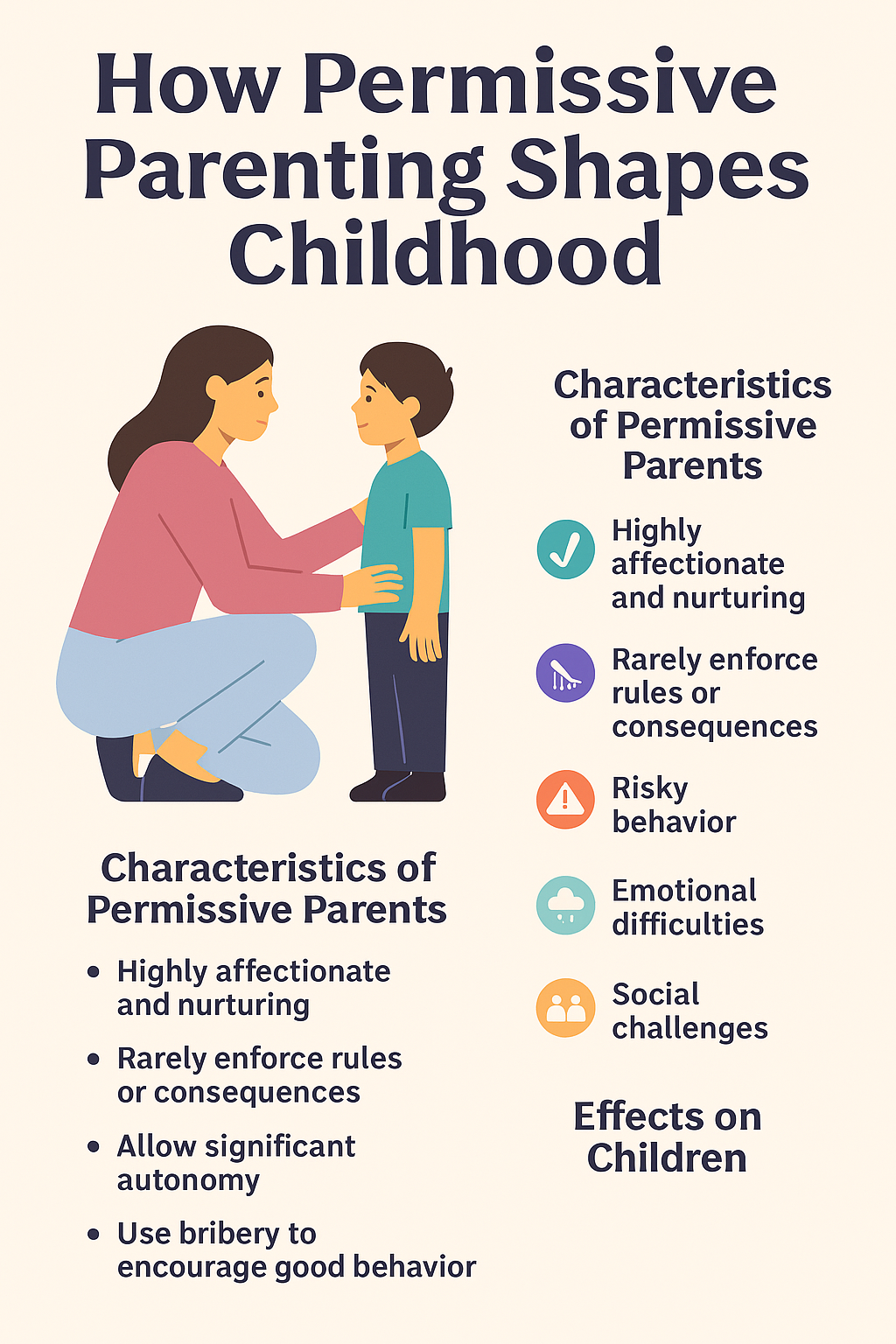
Do you often feel more like a buddy than a parent to your child? Are rules in your household more like flexible suggestions than firm expectations? If so, you might be using a permissive parenting style—and it could be shaping your child’s future in ways you didn’t expect.
Permissive parenting is characterized by warmth and affection, but with few rules, expectations, or consequences. While it may feel like a loving and positive approach, research shows it can lead to problems with self-discipline, academic achievement, and emotional regulation.
What Is Permissive Parenting?
Permissive parenting, sometimes called indulgent parenting, involves being highly responsive to a child’s needs and emotions—but not very demanding. Parents who use this style often avoid confrontation, rarely enforce rules, and treat their children more like peers than dependents.
Key Characteristics of Permissive Parents:
- Highly affectionate and nurturing
- Rarely enforce rules or routines
- Avoid setting limits or consequences
- Allow children significant autonomy
- Often use bribery (toys, treats) instead of discipline
Effects of Permissive Parenting on Child Development
Although permissive parents have good intentions, their approach can have lasting effects on their children’s behavior, emotions, and success.
1. Low Self-Discipline
Children raised in permissive households often struggle with self-control and time management. Without structured limits, they may develop poor study habits, overindulge in screen time, or eat unhealthily.
2. Poor Academic Performance
Lack of expectations means children may not feel motivated to excel. Studies have linked permissive parenting to lower academic achievement due to the absence of clear goals and accountability.
3. Risky Behavior
Teens raised in permissive environments may be more prone to substance use, delinquency, or risky decisions. The absence of rules and consequences can reduce their ability to assess dangers or cope with peer pressure.
4. Emotional Difficulties
These children often struggle with handling frustration or stress. Without boundaries, they may not learn how to manage emotions or resolve conflicts in healthy ways.
5. Social Challenges
Permissive parenting may affect a child’s ability to share, take responsibility, or respect authority. While they may be sociable, they often lack key social skills needed in structured environments like school.
Are There Any Benefits to Permissive Parenting?
- Despite its drawbacks, permissive parenting has some upsides:
- High Self-Esteem: Some studies suggest that children raised with warmth and acceptance develop strong self-worth.
- Emotional Connection: The deep bond and open communication foster trust and emotional security.
- Cultural Relevance: In some non-Western cultures, permissive parenting may align with societal values and still produce positive outcomes.
How to Shift From Permissive to Balanced Parenting
If you recognize signs of permissiveness in your parenting, it’s not too late to shift toward a more structured, authoritative approach. Here are a few steps:
- Set Clear Rules: Establish consistent household rules and explain the reasons behind them.
- Be Firm but Loving: Follow through with consequences when rules are broken, but do so with empathy.
- Encourage Responsibility: Give children age-appropriate chores and decisions to build accountability.
- Reward Positive Behavior: Recognize and praise good choices to reinforce discipline without harshness.
Permissive parenting can hinder a child’s ability to self-regulate, achieve academically, and interact socially. By balancing love with structure, parents can foster independence while guiding their children toward responsible, confident adulthood.



